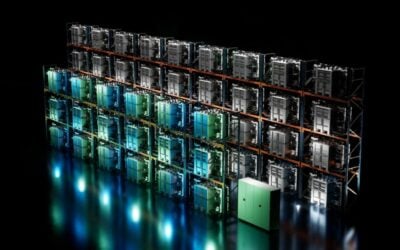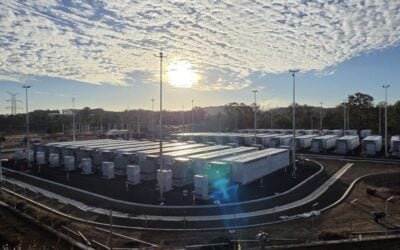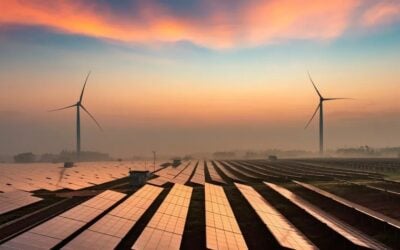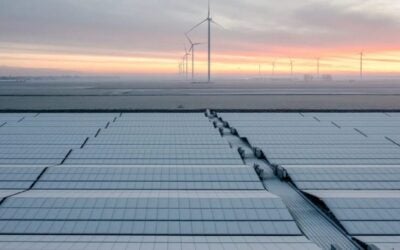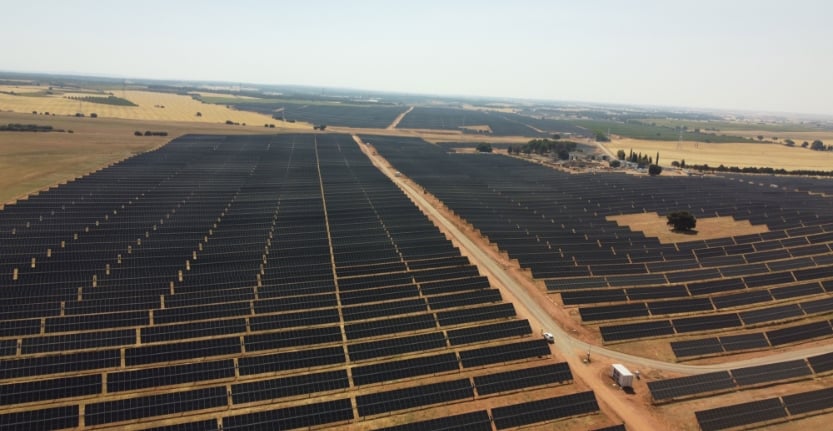
Subsidiary of Nofar Energy, Nofar USA and subsidiary of Hanwha Qcells, Qcells USA, have signed an agreement to develop and construct two battery energy storage system (BESS) projects in Texas totalling 350MW/700MWh.
The projects, in the final steps of interconnection approvals, were originated by Qcells.
Nofar plans to start construction later in the year and hopes to bring the projects online in 2027.
The 230MW/460MWh Bracero Pecan BESS is located in Reeves County, Texas, and the 120MW/240MWh Fairway BESS is located in Freestone County, Texas.
Try Premium for just $1
- Full premium access for the first month at only $1
- Converts to an annual rate after 30 days unless cancelled
- Cancel anytime during the trial period
Premium Benefits
- Expert industry analysis and interviews
- Digital access to PV Tech Power journal
- Exclusive event discounts
Or get the full Premium subscription right away
Or continue reading this article for free
Qcells says that the location of the projects — Bracero Pecan in the Electric Reliability Council of Texas (ERCOT) West market and Fairway, in the ERCOT North market, will strategically improve grid resiliency.
Bracero Pecan will interconnect with utility AEP and Fairway with utility Oncor.
Qcells may be better known as a solar PV cell and module manufacturer internationally, but also develops, invests in and delivers PV and energy storage projects through its engineering, procurement and construction (EPC) and development businesses in the US.
The company previously released an all-in-one renewable energy package for the residential storage market and then acquired energy storage software pioneer Growing Energy Labs Inc (Geli), largely with a view to taking on the commercial and industrial (C&I) market segment.
Since then, the company has been involved in larger, utility-scale projects. In 2024, it commissioned a 50MW/200MWh solar-plus-storage project in California.
In 2023, Spain-based renewable energy firm Acciona Energia acquired a 190MW/380MWh BESS Texas, from Qcells.
Facing growing load demands, Texas continues to be an active market for BESS projects, driven by the ERCOT wholesale market’s unique structure, which enables merchant opportunities for storage developers.
The state accounted for 1,185MW of a total 3,336MW/9,499MWh US grid-scale battery storage installments recorded in Q4 2024, according to market research firm Wood Mackenzie’s most recent US Energy Storage Monitor Report.
A trend in the ERCOT market, as discussed in a July 2024 conversation with Energy-Storage.news and Modo Energy(Premium access article), is that revenues are becoming concentrated into a fewer number of days.
This leads to an increase in volatility, where prices are either incredibly high or incredibly low.
ESN Premium recently spoke with energy software and consulting group Ascend Analytics CEO Dr. Gary Dorris PhD (Premium access article), about changes to ancillary services in the ERCOT market and what asset optimisers need to do to stay ahead of the curve.
Dorris stated: “When markets saturate, ancillary service prices don’t drop to zero, but they become more stable.”
“You get to a point where energy and ancillary services are economically indifferent, which reduces the potential for large revenue differences.”
“Still, there will be volatility in both energy and ancillary prices due to the growing share of renewables, which brings more volatility into the market.”
Recently, Developer-operator TransGrid Energy, another Hanwha Group subsidiary from New York-headquartered Hanwha FutureProof, successfully secured over US$1.4 billion in financing for two BESS projects located in Arizona, US, with a combined capacity of 450MW/1,800MWh.
The group has also been busy elsewhere in the world. Hanwha Energy signed a battery supply agreement for a 275MW/2,200MWh BESS in northern New South Wales, Australia, with Australian renewable energy developer Ark Energy, earlier this month.

